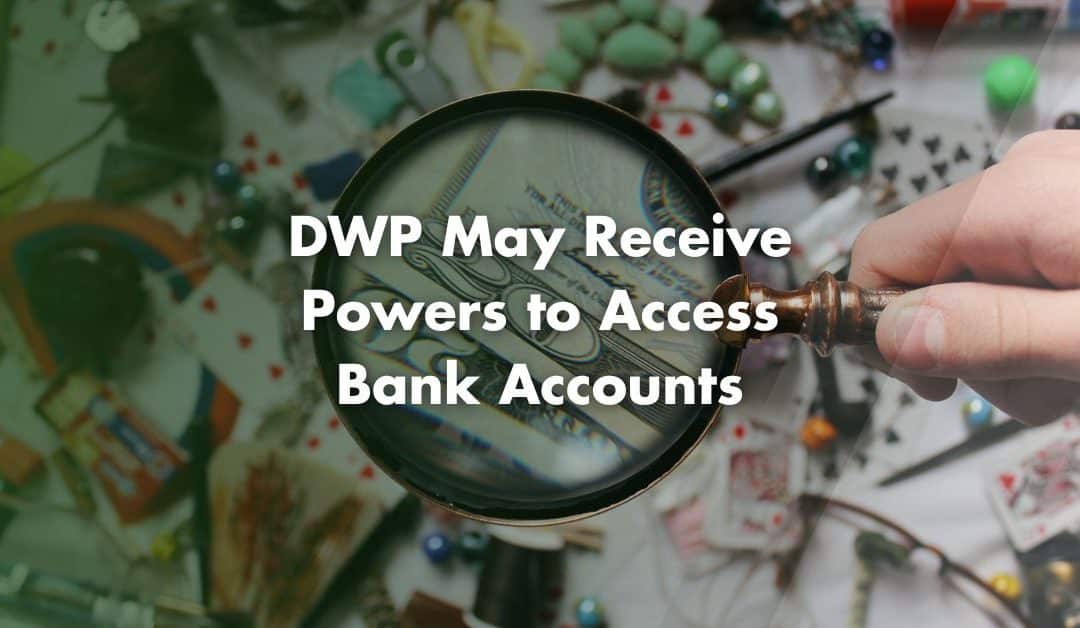Starting from 2026, the Department for Work and Pensions (DWP) will gain new powers to check the financial eligibility of certain benefit claimants. These powers fall under the Public Authorities (Fraud, Error and Recovery) Bill and should save around £940 million over five years.
What Powers are the DWP Receiving?
Under the new legislation, banks and building societies will monitor accounts linked to benefit payments such as Universal Credit, Pension Credit and Employment and Support Allowance (ESA). These financial institutions will look for signs that a claimant may not meet the eligibility rules. If potential issues arise, the banks will pass that information to the DWP.
However, the DWP will not have unrestricted access to anyone’s account. They will not see how individuals spend their money. Instead, banks will share limited alerts when certain risk indicators appear, such as savings above the £16,000 threshold for Universal Credit. These alerts will then prompt the DWP to review a claimant’s eligibility.
Officials believe this new system will help identify incorrect payments more quickly, making sure claimants receive the correct amount while preventing debts from growing.
How the New Checks Will Work
The DWP’s new “eligibility verification” system will rely on automated tools to help banks detect risk indicators. These might include unusually high balances or activity inconsistent with eligibility rules. When these indicators appear, banks will flag them for human review.
Only DWP staff will make final decisions on flagged cases. The department insists that every case will receive manual oversight to prevent false accusations. The DWP argues that this new approach will help reduce both fraud and human error.
For example: If someone’s savings rise above the eligibility limit, the DWP can respond before large overpayments occur.
Why the Government is Introducing These Powers
Fraud and error in the benefits system continue to cost billions each year. The DWP estimates that £9.7 billion was lost to fraud and error in 2023/24. Officials believe that better access to verified data will make it easier to spot inconsistencies, therefore saving public money.
Stuart Morris, a former DWP official, noted that this data-led approach could also modernise public services. A secure digital identity framework could simplify applications for benefits, tax and even pensions. However, he also warned that strong privacy safeguards and clear public consent must remain central to any expansion of data-sharing.
Concerns from Charities and Campaigners
Despite Government assurances, charities and rights groups have voiced serious concerns. Organisations such as Disability Rights UK and Privacy International fear that the new powers could lead to mass surveillance. They warn that millions of people might be monitored without any suspicion of wrongdoing.
In an open letter to minister, campaigners compared the proposal to the Post Office Horizon scandal, where faulty systems caused severe injustice. They fear that similar technology-driven errors could harm pensioners, carers and disabled individuals who rely on benefits.
What the New DWP Powers Mean for Claimants
The DWP has reassured claimants that honest recipients have nothing to worry about. The department will not check how people spend their money or monitor everyday transactions. Instead, it will focus on confirming that claimants meet eligibility rules. While the DWP already relies on self-reporting, the new data checks will allow it to confirm information more quickly and reduce errors.
The department will start a pilot phase before a full rollout from 2026. During this stage, officials will evaluate how well the system works and make improvements where needed.
Contact Us
We are not just accountants; we are Chartered Accountants with one of the most reputable and premium accounting bodies. We are registered and regulated by ACCA; so you can rest assured that you are in good hands. Knowing this, don’t hesitate to get in touch with us if you require assistance: Pi Accountancy | Contact Us
This article is for general informational purposes only and does not constitute legal or financial advice. While we aim to keep our content up to date and accurate, UK tax laws and regulations are subject to change. Please speak to an accountant or tax professional for advice tailored to your individual circumstances. Pi Accountancy accepts no responsibility for any issues arising from reliance on the information provided.

